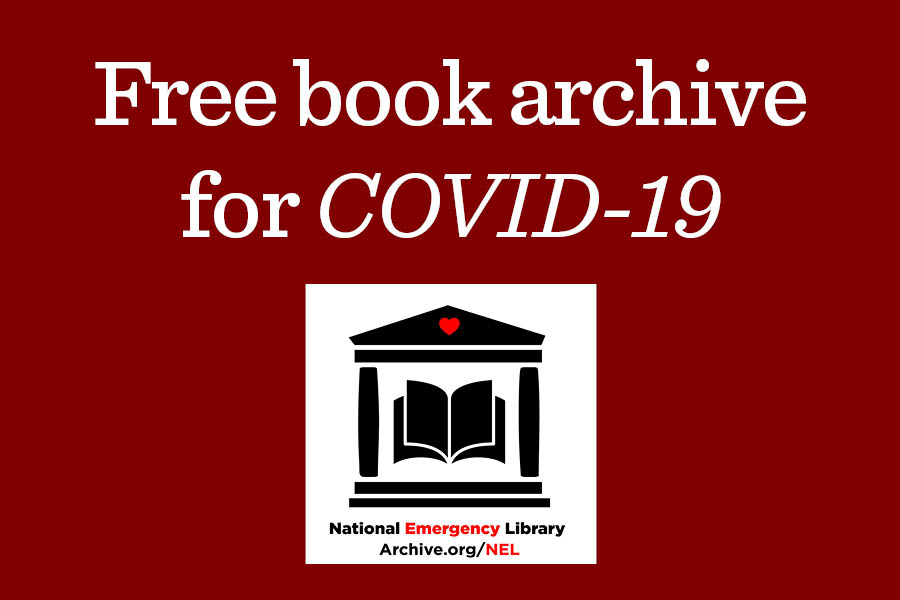National Emergency Library provides controversial service
April 14, 2020
With the world paused, people everywhere are left with nothing but ample of time in their hands. For many, this translates into the perfect time to plop into a comfy corner and race through all those books that haven’t been read yet. However, for those who don’t have a pile of unread books in the back of their shelves and can’t afford the next seven books of their favorite series, the National Emergency Library has come to their rescue while causing a debate.
The Internet Archive, based in San Francisco, recently opened the National Emergency Library, a digital collection of 1.4 million books published before 2015 as a way to provide resources during the COVID-19 pandemic. The books range anywhere from non-fiction, scientific books such as “A Brief History of Time” by Stephen Hawking to quick-paced thriller novels such as “The Girl on the Train” by Paula Hawkins.
The library is intended to be used only during this pandemic. The National Emergency Library will be open until June 30 (or until the national emergency is over, whichever is later). E-books can be obtained by creating a free account on the website.
The Internet Archive website states that the collection of books was published to support emergency remote teaching, research activities, independent scholarship, and intellectual stimulation while universities, schools, training centers and libraries are closed.
However, one issue has sparked debate — is the act of giving out the digital copies for free piracy? According to Susan Augustine, a librarian for U-High’s Pritzker Traubert Family Library, arguments can be made on both sides of the case.
“As a librarian, I’m always in favor of more access for people,” Ms. Augustine said. “I think it could be helpful, thinking about the freshman this year with their [independent reading] project, and how they can’t get their hands on the physical copies.”
On the other hand, Ms. Augustine believes that it’s important to take the writers into consideration, who have been arguing that the National Emergency Library violates their copyright and ability to make a living.
“I worry about the writers and I want to protect their creative endeavors,” Ms. Augustine said. “The financial repercussions for authors who are already being hurt right now in this economy is something to worry about.”
Overall, Ms. Augustine believes that the website has both pros and cons, and she strongly encourages teachers to use the University of Chicago’s Regenstein Library.
“We’re so fortunate that we have that connection right now,” Ms. Augustine said.
According to Ms. Augustine, “I can see how it would be helpful with individual cases, but in the global picture it does seem problematic.”




























































